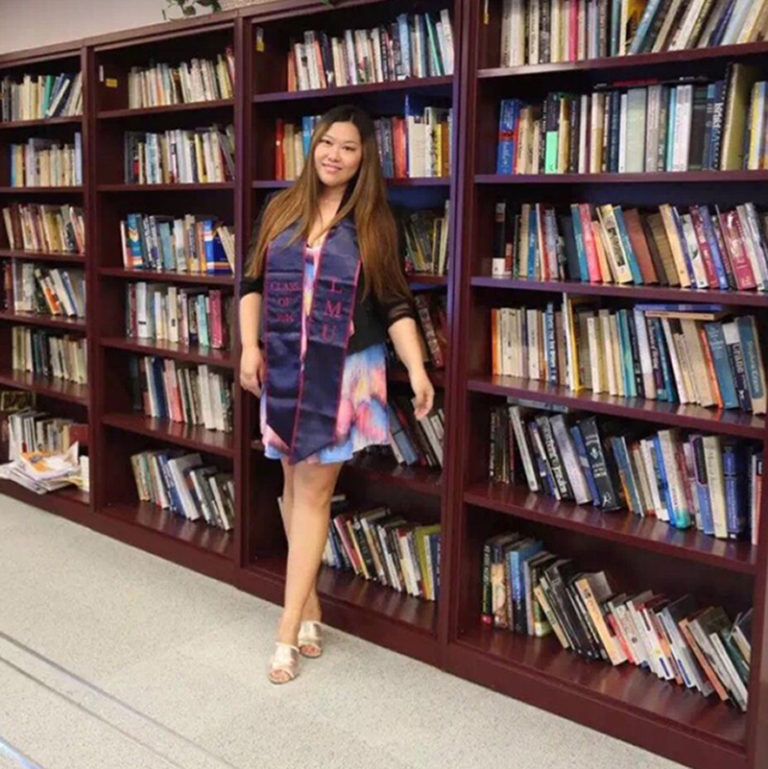
Wendy (Xiaoxue) Sun, M.A. ’16 developed an interest in cross-cultural studies early, as a child who grew up in China and Germany. After graduating from Jilin University, she earned an M.A. in Comparative Literature and World Literature from Peking University. She entered the Graduate Program in English at Loyola Marymount University in 2014 and completed the program in May 2016. Sun started her next chapter at University of California, Santa Barbara the following fall, where she was accepted into the Ph.D. program in comparative literature.
Q: How did you decide to attend LMU’s English master’s program?
A: I learned about LMU from a friend who I knew in Beijing who was a graduate student at the School of Film and Television at LMU. I did research on the program and the school’s reputation, and decided to apply.
Q: What have been some of your research interests?
A: My research interests before LMU were vague. I wanted to do something related to cross-cultural studies, and something that could make my trilingual language skills useful. At LMU, I had the opportunity to do research with excellent professors and helpful peers and gradually found out what I want to do.
Currently, my primary focus is in German literature. In an independent study last summer, Sarah Maclay helped me develop my writing sample for my Ph.D. applications, which I further developed as my Capstone this spring. My writing sample is titled “Poppy and Memory: Darkness Spoken between Ingeborg Bachmann and Paul Celan.”
My secondary interest is in Chinese immigrant literature. My ambition is to translate western novels that introduce feminist emancipation movements into Chinese in order to enlighten my people.
I developed my third interest in my Contemporary Theory class taught by Steven Mailloux. He encouraged my interests in translations studies. In his class, I did research on Heidegger’s influence from the Chinese classic Daodejing (Tao Te Ching). Since Heidegger only had access to the German translation of the original Chinese language, he misinterpreted the original meanings. However, it is fascinating that it still helped him create a new perspective, and he was able to contribute new philosophical ideas to East-West dialogues.
For me, doing research in literature is not only an academic pursuit but also a personal journey, in which I can use my language skills to wander through cultures and break linguistic thresholds, in the hope that one day it will lead me to the Tower of Babel.
Q: What do you plan to study in the Ph.D. program at UCSB, and how did LMU prepared you for this next step?
A: I plan to study Comparative Literature (German track) at UCSB. In Robin Miskolcze’s class, we learned what it means to be in academia and what we should do if we want to get prepared to enter this world. The graduate directors and my department have supported me to go to academic conferences. I learned how to be a good teacher and am now excited and confident for my new journey.
Q: What is your advice to incoming graduate students?
A: Focus on the courses and do your homework. Try to make a decision if you want to go further in academia or not. If you do, at the end of your second semester, you should already know what you want to specialize in and ask professors for recommendations. Attend conferences and experience the academic world. Finally, do research on universities and see which program is the best fit.
I want to express my gratitude for the English Department and for LMU. I think the small class sizes and office hours have helped me a lot. The professors were very patient with my non-native English, and I want to thank the Academic Resource Center for improving my writing skills in English. I am going to start off my new journey from what I inherited as a Lion from LMU, and I am proud to say that it was one of the most valuable experiences in my life.